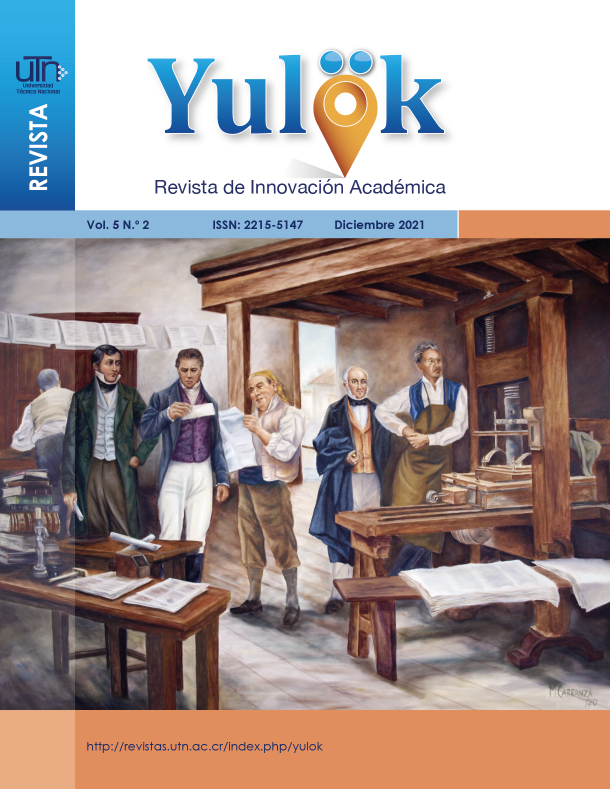Adult learning: Salient Conditions and Non-traditional Approaches
Main Article Content
Abstract
Learning in adulthood constitutes a process that is shaped and influenced by the societal group in which adult learners share, work, live, grow, experience, fail and achieve success. Comprehending and appreciating the historical and sociocultural ways of understanding and being represent an endeavor on which adult learners need to embark in order to grasp the nature and purpose of learning within particular milieus. The aim of this paper is to explore salient conditions and non-traditional approaches through an adult learning lens so as to offer an overarching panorama of the field. These salient conditions are globalization, technology, population growth and economic factors. The non-traditional approaches discussed are embodied learning, narrative learning, spiritual learning, transformative learning theory, indigenous knowledge and pedagogy of solidarity. Finally, the conclusion highlights the relevance of adult learning for societies. The last twenty years have brought a much-needed recognition that adult learning is multidimensional. This constitutes a relevant takeaway. Moving away from the vision that cognitive processing is the unique and most important element when acquiring knowledge has brought thought-provoking constructs such as spirituality, feelings, environmental awareness, emotions, fears, and experiences to a more holistic, in-depth vision of learning. As a result, the field of adult learning is influenced by the sociohistorical context where it takes place. Learning in society provides broader concepts where the current realities of the workplace, educational systems, economic vicissitudes and life situations directly impact the status quo of learning in adulthood. It is precisely this richness in the diversity of contexts that makes the field of adult learning a multidimensional phenomenon.
Article Details
Section

This work is licensed under a Creative Commons Attribution-NonCommercial-ShareAlike 4.0 International License.
Todos los artículos publicados están protegidos con la licencia Creative Commons Atribución-NoComercial-CompartirIgual 4.0 Internacional
![]()
How to Cite
References
Brookfield, S. (1998). Against naïve romanticism: From celebration to the critical analysis
of experience. Studies in Continuing Education, 20(2), 127-142.
Clark, M. & Rossiter, M. (2008). Narrative learning in adulthood. In Merriam, S. (Ed.), Third
update on adult learning theory (pp. 61-70). Jossey-Bass.
Freiler, T. (2008). Learning through the body. In Merriam, S. (Ed.), Third update on adult
learning theory (pp. 37-47). Jossey-Bass.
Freire, P. (2018). Pedagogy of the oppressed. Bloomsbury.
Freire, P. (2014). Pedagogy of solidarity. In P. Freire, A. M. A. Freire, & W. F. de Oliveira
(Eds.), Pedagogy of solidarity (pp. 15-33). Leftcoast Press.
Giroux, H. (2014). Neoliberalism’s war on higher education. Haymarket Books.
Instituto Nacional de Estadística y Censos. (2011). Aspectos sociodemográficos de la migración
internacional en Costa Rica según el censo 2011[PDF file]. Retrieved from http://www.inec.go.cr/sites/default/files/documentos/inec_institucional/publicaciones/anpoblaccenso2011-01.pdf_1.pdf
Instituto Nacional de Estadística y Censos. (2014). Estimaciones y proyecciones de población
distritales por sexo y grupos de edades 2000 - 2025 [PDF file]. Retrieved from http://www.inec.go.cr/sites/default/files/documetos-biblioteca-virtual/reestimacionesdistritales_0.pdf
Knowles, M. (1984). Andragogy in action. Josey-Bass Publishers.
Leavy, P., Gnong, A., & Ross, L. (2009). Femininity, Masculinity, and Body Image Issues
among College-Age Women: An In-Depth and Written Interview Study of the Mind-Body Dichotomy. The Qualitative Report,14(2), 261-292.
Matsumura, L., Slater, S., & Crosson, A. (2008). Classroom Climate, Rigorous Instruction and
Curriculum, and Students' Interactions in Urban Middle Schools. The Elementary School Journal, 8(4), 293-312. doi:10.1086/528973
Merriam, S. (2008). Adult learning theory for the twenty-first century. In Merriam, S. (Ed.),
Third update on adult learning theory (pp. 93-98). Jossey-Bass.
Merriam, S., Caffarella, R., & Baumgartner, L. (2007). Learning in adulthood: A
Comprehensive guide (3rd ed.). Jossey-Bass.
Merriam, S., & Kim, Y. (2008). Non-western perspectives on learning and knowing. In Merriam,
S. (Ed.), Third update on adult learning theory (pp. 71-81). Jossey-Bass.
Mezirow, J. (2003). Transformative Learning as Discourse. Journal of Transformative
Education, 1(1), 58–63. https://doi.org/10.1177/1541344603252172
Mitra, A. (1998). Categories of computer use and their relationships with attitudes toward
computer. Journal of Research on Computing in Education. 30(3), 281-295.
Rose, E. (2013). On reflection: An essay on technology, education, and the status of
thought in the twenty-first century. Canadian Scholars’ Press Inc.
Sears, A., & Cairns, J. (2010). A good book, in theory: Making sense through inquiry (2nd
ed.). University of Toronto Press.
Taylor, E. (2008). Transformative learning theory. In Merriam, S. (Ed.), Third update on adult
learning theory (pp. 5-15). Jossey-Bass.
Tisdell, E. (2008). Spirituality and adult learning. In Merriam, S. (Ed.), Third update on adult
learning theory (pp. 27-36). Jossey-Bass.
Ventocilla, J., Valerio, F., & Chapin, M. (1995). Los indígenas kunas y la conservación
ambiental. Mesoamérica 29, 95-124.
Vygotsky, L. (1978). Mind in society: The development of higher psychological processes.
Harvard University Press.

